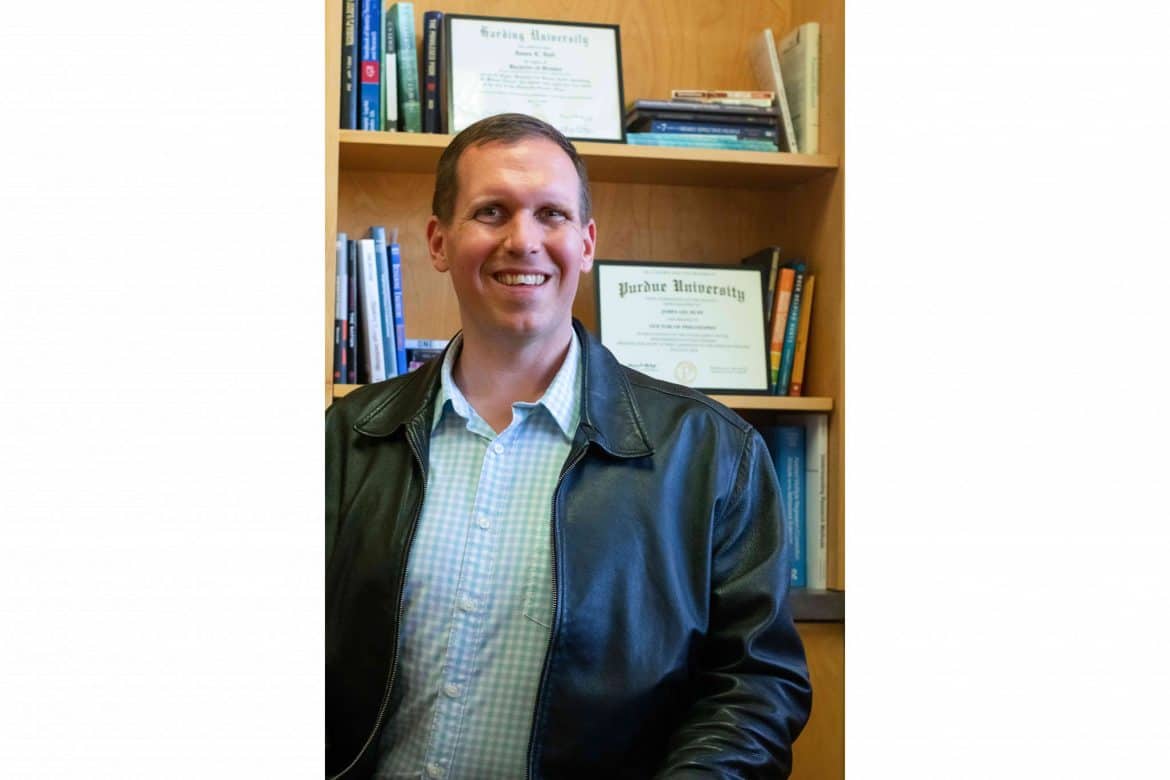Written by Ben Lane
The National Science Foundation (NSF) awarded Dr. James Huff, associate professor of engineering, a CAREER grant on April 5 for his psychological research on professional engineers and shame.
The grant is the most prestigious award given to an early-career Harding faculty member and the only CAREER grant to be given at Harding. It is the 59th CAREER grant awarded in the state of Arkansas and only the sixth at an institution other than the University of Arkansas since NSF’s inception in 1994. His research, titled “CAREER: Advancing academic cultures of well-being by understanding professional experiences of engineering faculty,” will be funded with $575,000 over the course of five years starting June 1. Huff is currently the principal investigator for a different NSF award, and this research, which Huff said his new research “grew out of,” has been published in the “Journal of Engineering Education.”
“What became clear in my trajectory of [previous] research is that when we’re thinking about messages about what it means to be an engineer, faculty get to play a key role in those messages of who gets to be a professional,” Huff said.
Rather than thinking of what the faculty’s message should be, Huff said he became more concerned with the “emotional state” of faculty and how they experienced moments of professional shame.
Huff’s three objectives for the research are to examine social and individual experiences of failure and negative emotions in engineering faculty, to examine how the surrounding culture of engineering faculty feeds into their experiences and what faculty do to affect the culture around them, and provide specific training for how to live well in the engineering profession and as faculty of the profession.
The research will be conducted by a team of people from undergraduate research assistants on Harding’s campus to a postdoctoral researcher at Oregon State University participating remotely. Undergraduate researchers will be part of his Beyond Professional Identity (BPI) Lab over multiple semesters, and Huff said he envisions the grant as an opportunity to fund students to take on pieces of the research as their own, which will contribute to the objectives of the research.
Post-baccalaureate research associate Mackenzie Sharbine, who works on Huff’s current NSF grant and will begin a Ph.D. program in the fall, said that the funding allows students to develop as researchers.
“I think it means more opportunities for students … [because] departments don’t necessarily have money to send students to [conferences] with name recognition,” Sharbine said.
Senior Laura Weber, who is currently in the BPI lab, said that Huff is “deeply ingrained in the world of research” and that “he knows exactly what he is doing every step of the way.”
“I think [Huff] does an incredible job of allowing students that he mentors to be independent but still, if we need help, [he is] there to provide help,” Weber said.
